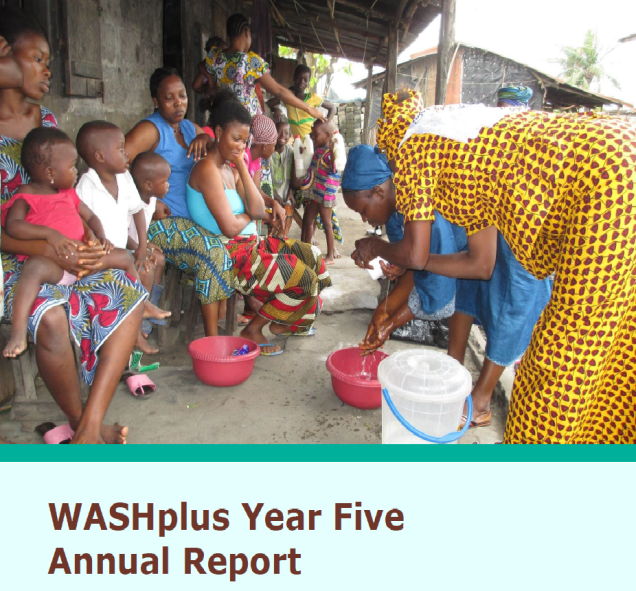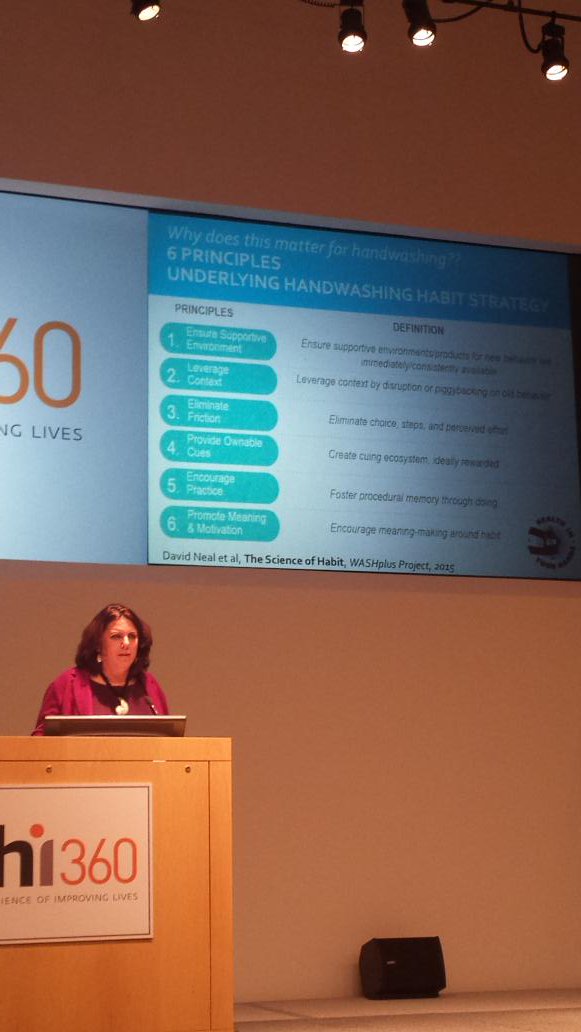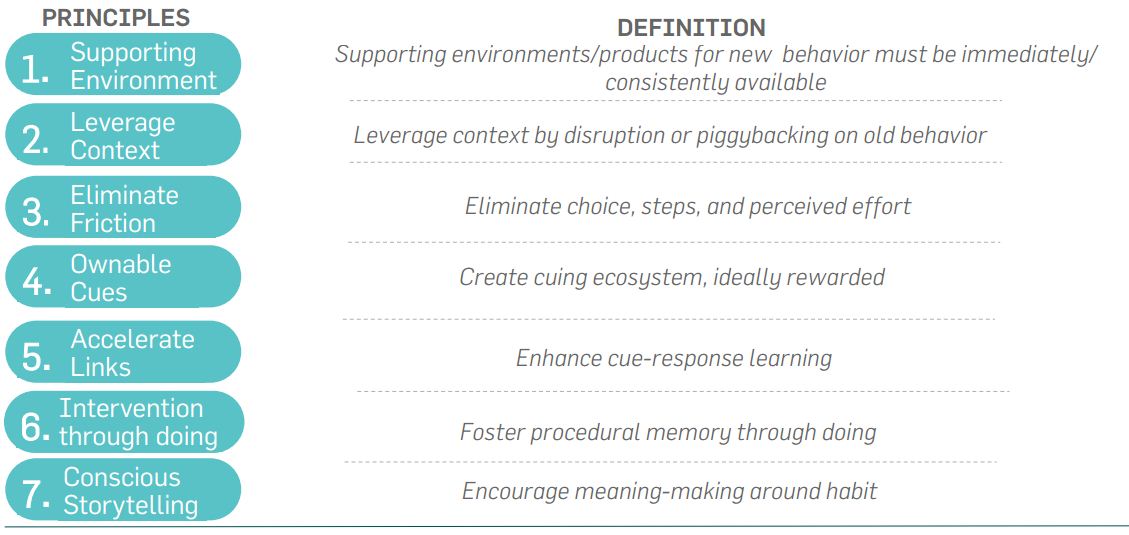
In its Year Five Annual Report, WASHplus has stories to tell, results to share, events to celebrate, and studies that add to the evidence base. WASHplus activities serve as the backdrop for many stories: the Zambian school girl who has access to privacy and menstrual supplies when she needs them, the Malian household that can now build an improved latrine on their rocky soil, the mother in Bangladesh who understands the importance of a feces-free environment, the Nepali home breathing cleaner air as it trials an improved cookstove. And perhaps more compelling than the individual stories are the results the project is beginning to record through endline data collection in Kenya and formative research on school enrollment and in Zambia. Providing water, sanitation, and hygiene (WASH) infrastructure to schools is having a notable impact on enrollment. Community-led total sanitation (CLTS) may be inoculating communities exposed to cholera. Numbers also tell the story of the project’s impact. Look for a snapshot of those figures throughout the report.
The conclusion of field activities in Uganda and Zambia this year provided opportunities to reflect, celebrate accomplishments through end-of-project (EOP) events, and share lessons learned. Several articles were published this year in peer-reviewed journals and others submitted on topics ranging from consumer preferences and willingness to pay for improved cookstoves to habit formation and costing of handwashing. WASHplus also played a key role in preparing the joint document on WASH and nutrition for publication and distribution.
WASHplus’s focus on integrating WASH into other development initiatives enabled the project to get in on the ground floor on subjects that are gaining traction at USAID and globally, such as WASH and nutrition, neglected tropical diseases, and MHM. This integration focus dovetailed nicely with the project’s mandate to serve a technical leadership role, and project staff had many opportunities this year to share its work and lessons from the field on a global stage, strategize with partners on important advocacy issues, inform policy, and develop guidance in multiple countries. Also toward that end, WASHplus launched its first two learning briefs on small doable actions and WASH and nutrition. This series details the variety of approaches WASHplus uses to improve WASH and household air pollution (HAP) across its portfolio of countries.
And finally, it’s been an exciting year for innovation with pilot projects underway in Ethiopia and Bangladesh focusing on sanitation marketing and sand envelopment. These two efforts will add to WASHplus’s body of knowledge on sanitation innovation and aligns closely with USAID’s global interest on the topic. WASHplus is also documenting its fecal sludge management work in Madagascar to tell the next chapter in that story.



